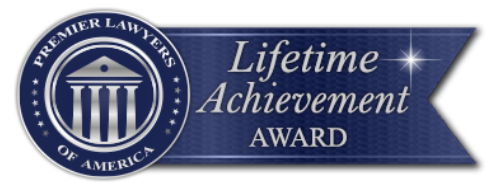WE KNOW COMMERCIAL CONSTRUCTION LAW
Lovein Ribman is a Texas based construction law firm who represents the construction industry in every county throughout the entire state of Texas. Our firm is led by Board-Certified Construction Attorneys (an honor held by only 135 attorneys in the state) who represent Commercial Property Owners, Commercial Tenants, Developers, General Contractors, and every Subcontracting trade in the industry, from earthwork contractors, concrete contractors, HVAC contractors, steel fabricators, masonry suppliers and installers, electricians, structural repair contractors, plumbers, truss manufacturers, roofers, painters, millworkers, commercial glass fabricators and installers, fire suppression contractors, Material and Equipment Suppliers, and so on . . . with prosecuting and/or defending every type of dispute that can arise on commercial construction Project to include disputes over non-payment or the right to withholding payment, a Contractor’s failure to pay Subcontractors/Suppliers, Mechanic’s Lien Claims, alleged defective workmanship, Project delays and delay damages, change order disputes, and Project abandonment. If you are presently in a dispute or anticipating one, please contact us for a no obligation consultation by calling us directly or at (888) 368-2483 or by submitting the Contact Form. Read on to learn more about the common commercial disputes and how we assist our clients with resolving them.
COMMON COMMERCIAL CONSTRUCTION DISPUTES
Although there are a multitude of varying types of Commercial construction disputes, there are certain disputes which seem to reoccur on almost every commercial Project. These disputes are so common, that most construction Contracts attempt to address them in advance. Whether you are a Developer, Contractor, Subcontractor or Supplier, you should become familiar with these disputes, ensure your Contract addresses them in your favor and know how to respond when one of these disputes occurs on your Project. Below is a list and brief discussion of the most common commercial disputes. Following this section is a list and discussion of common payment disputes and strategies to resolve them.
Disputes Over Changes Orders: Most commercial construction contracts require the parties to execute a written Change Order to formally modify the contract price, scope, or time. Payment disputes commonly arise when a contractor performs extra work without first obtaining a fully executed change order to increase the contract price for the extra work. The most well drafted change order provisions expressly state that the Contractor is not entitled to additional compensation if the work is performed without first obtaining an executed change order, even if the work was requested. Moreover, the general rule in Texas is that such provisions are enforceable and can bar the Contractor’s right to recover the additional compensation. However, such a result seems inherently unfair and as such, there are exceptions. First, if the extra work was requested and the requesting party thereafter refused to sign a change order for additional compensation, then the court could find that a separate oral promise existed for the additional work and compensation is owed to the Contractor. Second, if throughout the course of the Project the Contractor was requested to perform extra work on several occasions and the parties never executed any changes orders, then the court might find that the parties waived the change order provision requirements. Third, the unpaid party might be able to demonstrate through emails and text messages that the parties did in fact agree to modify the Contract scope and price but failed to reduce the modification to a formal written change order. As such, both parties should be aware that even if their Contract expressly requires a written change order, legal defenses and arguments exist which could potentially defeat the contractual requirement for a fully executed change order.
Disputes Over Nonconforming or Defective Work: Disputes over nonconforming or defective work are very common and can arise during or after completion of the Project. If the issues are discovered during the Project and money is still owed to the Contractor, then the Prompt Payment Act allows the Payor to withhold 100% of the cost to correct the defective work after providing written notice to the Contractor. In response, the Act allows the Contractor the right to inspect the defective/nonconforming work and either correct the work or agree to offset the amount owed in an amount equal to the cost to correct the work. Claims for non-conforming or defective work are generally not covered by the Contractor’s commercial general liability policy, unless the defects have caused “resultant damage” to other work and the policy does not contain exclusions which would otherwise exclude coverage. Whether prosecuting or defending a claim for nonconforming/defective work, retaining a third-party forensic expert who specializes in the trade at-issue to support your position is mandatory.
Disputes Over Scheduling, Delayed Performance, Acceleration, Delay Damages and Liquidated Damages: Time is money; it is a cliché for a reason. For everyday Project completion is extended, construction costs increase, and the parties suffer indirect or consequential damages (e.g., lost profits, increased interest payments, lost opportunities, etc.). Property owner delays typically include: (1) failure to provide access to the agreed workspace; (2) interference with the Contractor’s means and methods; (3) excessive change orders; (4) failure to provide specific plans/specifications resulting in excessive RFI’s; (5) failure to timely provide materials or the correct materials; and (6) failure to timely approve phases of the work. Common Contractor related delays include: (1) failure to timely mobilize; (2) failure to manage the Project; (3) failure to retain qualified Subcontractors and Laborers; (4) failure to purchase and deliver materials; (5) failure to provide adequate manpower; (6) failure to adhere or maintain the Project schedule; (7) failure to properly perform the work resulting in correction work; and (8) failure to timely obtain permits.
Property owners typically seek to protect their interests by including contract provisions which: (1) impose a daily monetary penalty (i.e., a liquidated damage provision) for Project delays; (2) a No Damage for Delay (“NDFD”) provision which bars the contractor for recovering damages suffered by owner delays; (3) the right to accelerate or supplement the Contractor’s workforce; and (4) waiver of consequential or indirect damages. Invoking any one of these provisions typically results in a dispute between the parties. In response, a Contractor can argue that: (1) it did not cause the delays or the delays were outside of its control and therefore excusable; (2) the NDFD is unenforceable because one of the five court recognized exceptions exist, i.e., the delay was not intended or contemplated by the parties; the delay resulted from the owner’s intentional and/or bad acts; the delay extended for such an unreasonable length of time that the party delayed would be justified in abandoning the contract; the delay is not within the specific delays enumerated in the provision; or when the delay was caused by arbitrary and/or capricious conduct; or (3) that it is entitled to compensation for acceleration of the work or supplementing its workforce was unnecessary and a breach of the Contract.
Commercial disputes over delays require a qualified scheduling and damage expert who can analyze the Project schedule and impact the delays truly had on the overall completion of the Project.
Disputes Over Design Defects (Architects and Engineers): Defective work can arise from an Architect’s or Engineer’s improper or defective design. Architects and Engineers are held to a high standard of care and are responsible for their design defects. The first steps to enforcing or defending a claim by or against an Architect or Engineer for defective designs are typically: (1) reviewing the contract for the parties’ rights and obligations; (2) retaining a third-party Architect, Engineer, and/or Contractor to inspect the work and determine the nature of the defects; and (3) obtain an estimate to correct the defective work. In order to assert a claim against an Architect or Engineer for breach of professional services, you must first retain a third-party professional who holds the same or similar license to state under oath that the Architect’s or Engineer’s work fell below the standard of care. This statement is known as a “Certificate of Merit” and is required when bringing a claim against an Architect, Engineer, or Land Surveyor.
Disputes Over Wrongful Termination, Termination for Convenience and Abandonment: Most commercial construction Contracts contain specific provisions which expressly identify conduct or events which constitute an “Event of Default”, the manner in which to provide Notice of Default to the defaulting party, the amount of time to cure the default, and the damages the non-defaulting party can seek in the event the default is not timely cured. Typically, the first step to enforcing a default is for the non-defaulting party to send a Notice of Default & Request to Cure to the defaulting party. If the default is not cured within the required time, then the second step is to terminate the Contract and possibly seek money damages. If a party terminates the Contract without cause or following the default notice provisions, then the terminating party may be in breach and liable to pay the wrongfully terminated party’s lost profits, i.e., the profits the party would have earned but for the wrongful termination.
To the extent the Contractor is not in default, but the Property owner no longer desires to work with the Contractor, the owner may have the right to terminate the relationship without cause if the Contract contains a “termination for convenience” provision. This type of provision allows the Property owner to release the Contractor subject to paying the Contractor’s unpaid invoices and sometimes a small penalty in exchange for a release of future claims. Disputes typically arise over the right to enforce a termination for convenience provision and the money owed to the terminated Contractor.
If a Contractor abandons the Project prior to completing its scope of work, it is typically responsible for the damages caused by the abandonment, to include delay and disruption damages, and the increased costs incurred to complete its scope of work. Moreover, if the Contractor has been paid more than the value of the work completed, then it may be in violation of the Trust Fund Statute for wrongfully maintaining Project funds.
Disputes Over a Lien Threat or Fraudulent Lien Filing: The Texas Mechanic’s Liens laws are complex. Given their complexity, it is not uncommon for non-construction lawyers, online lien filing services, and Contractors/Subcontractors/Suppliers to wrongfully threaten, file, and/or maintain an invalid and unenforceable Mechanic’s Lien at some point during or after the Project has reached substantial completion. Moreover, the County Clerk’s Office does not act as a Lien “gatekeeper” and instead is required to accept and record all Lien Affidavits, even if the procedural requirements have not been satisfied (rendering the Lien invalid) or if the Lien Claimant is not lawfully owed money. Consequently, thousands of invalid and unenforceable Liens are recorded against Properties on a monthly basis. Unfortunately for the Property Owner, once a Lien has been recorded, valid or not, it will likely prevent the Property Owner from selling the Property, refinancing the Property, or converting a construction loan to a conventional loan. For a commercial Tenant, the Lien will likely place the Tenant in default of its lease and prevent the release of any Tenant finish-out monies. For General Contractors, when a Subcontractor, Material Supplier or Laborer files a Lien, it will typically place the Contractor in breach of its contract with the Property Owner and suspend future payments. With that said, threatening or filing a mechanic’s Lien is either the act with ignites a dispute or the consequence of an already existing payment dispute.
To Learn More About How to File a Lien and the Lien Laws, CLICK HERE.
To Learn More About How to Remove a Lien, CLICK HERE.
Methods for Resolving Common Commercial Disputes
Most commercial construction disputes arise out of or result in a payment dispute. There are several Texas statutes which seek to protect parties involved in a payment dispute and most well drafted commercial construction Contracts contain provisions which attempt to do the same. Whether you are the Payor (the party obligated to pay) or the Payee (the party entitled to payment), below is a brief summary of the laws and the strategies our construction attorneys use to protect clients when a payment dispute arises on a commercial construction Project.
Invoke The Prompt Payment Act (Both a Sword and a Shield): Texas has mandatory deadlines for paying Contractors, Subcontractors, and Suppliers who provide labor, material and/or equipment to a commercial Project. Pursuant to Texas Property Code, Chapter 28, referred to as the “Prompt Payment Act”, a Property Owner must pay its Contractor within no later than 35 days from receipt of a written payment request. In turn, the Contractor is required to pay its Subcontractors and Suppliers that portion of the payment attributable to their labor/material/equipment within no later than 7 days from receipt of the payment. Those Subcontractors and Suppliers are then required to pay their downstream Subcontractor and Suppliers within no later than 7 days as well.
If a Payor, without justification (as discussed below), fails to make payment within these mandatory deadlines, then the Prompt Payment Act provides the unpaid party with a few tools in which to compel payment. First, if the work is still in progress, then the unpaid party may suspend working on the Project if it has not received payment within 10 days from providing the Property Owner (and Lender if applicable) with written notice of nonpayment and its intent to cease work. The unpaid party is not required to return to the Project until it has received the payment and has been reimbursed for the costs associated with demobilizing and remobilizing to the Project. Additionally, the unpaid party is not responsible for any damage caused by the suspension. Second, an unpaid party is entitled to interest at 1.5% a month (18% annually) on the unpaid amount and reimbursement of reasonable attorneys’ fees/cost incurred to recover the amount owed. Without question, the Prompt Payment Act can provide an unpaid party with a sword in which to wield leverage over a non-paying party.
Notwithstanding the above, there is a way in which the Payor can use the Prompt Payment Act as a shield. Specifically, if the Payor can identify a legitimate reason, referred to as a “Good Faith Dispute”, as to why some or all the amount claimed owed should not be paid, then the Payor may withhold 100% of that amount from the overall payment until the dispute is resolved, but no more. For example, if a Payee submits a payment request in the amount of $75,000.00, but the Payor has a good faith reason for withholding $15,000.00 of that amount as a result of a dispute, then the Payor may withhold $15,000.00 and release the remaining undisputed $60,000.00. A good faith dispute can be for any legitimate reason, including an accounting error, defective work, incomplete work, or a right provided for by Contract, e.g., a contingent payment provision, statutory or contractual retainage, or an administrative condition precedent to payment like execution/exchange of a “Conditional Lien Waiver” Release.
To invoke the Good Faith Exception, the party asserting the defense must serve the unpaid party with written notice expressly identifying the specific reasons for withholding payment. If a reason specified includes nonconforming or defective work, then the unpaid party is entitled to a reasonable opportunity to cure the defects or to offer a sum of money in which to compensate the other party for the items that cannot be promptly cured. Presumably, failure to satisfy this notice requirement and/or to allow the unpaid party an opportunity to cure, would defeat a party’s assertion of the Good Faith Dispute exception as a defense to nonpayment. Further, if a trier-of-fact (through an arbitration or civil lawsuit) later finds that the party did not have a “good faith” right to withhold payment, then the withholding party may be required to pay accrued interest on the unpaid amount at 1.5% a month and reimburse the other party’s attorneys’ fees.
Payor Tip: If a Payor intends to withhold payment from a Contractor, Subcontractor or Supplier’s payment application, then it should concurrently provide written notice to the Payee that payment is being withheld pursuant to the Prompt Payment Act and specifically identify the basis for withholding that amount. The Payor should release the undisputed amount and not require the Payee to provide a Final Lien Waiver Release in exchange for the undisputed payment, in that doing so would unfairly bar the Payee’s claim to the disputed portion of the payment. Failure to release the undisputed amount would likely be a breach of contract and a violation of the Act.
Payee Tip: Upon receipt of the Payor’s Notice to withhold a percentage of the payment pursuant to a “Good Faith Dispute” that the work is defective or incomplete, the Payee should respond in writing (possibly through a Notice of Claim) requesting an opportunity to inspect and correct the work and threatening the filing of a mechanic’s Lien. If the request is denied, then the Payee should consider recording a mechanic’s Lien against the Property.
Invoke The Trust Fund Statute (Personal Liability and Civil/Criminal Penalties): A company or individual who wrongfully withholds payment from a Payee or diverts construction funds from the Project can be both civilly and criminally liable. Pursuant to Texas Property Code, Chapter 162, referred to as the “Trust Fund Statute” Contractors, Subcontractors, Suppliers and their respective officers, employees and agents who receive Project funds become a “trustee” of those funds if they are owed to another for labor or material provided to the Project. A trustee who intentionally, knowingly or with the “intent to defraud” directly or indirectly retains, uses, disburses, or otherwise diverts trust funds from the Project without first fully paying all current or past due obligations, is considered to have misapplied trust funds. A trustee acts with an “intent to defraud” when the trustee: (1) retains, uses, disburses, or diverts trust funds with the “intent to deprive the beneficiaries of the trust funds”; or (2) uses, disburses, or diverts trust funds that were paid to the trustee in exchange for a Lien Waiver & Release wherein the express representation was made that the funds would be used to pay current or past due obligations. A trustee who misapplies trust funds amounting to $500 or more commits a Class A misdemeanor. A trustee who misapplies trust funds amounting to $500 or more with the “intent to defraud”, commits a third-degree felony. The individual trustee who had control over the misapplied funds is personally liable, both civilly and criminally.
A trustee can potentially defeat an alleged Trust Fund violation if the trustee can prove that: (1) the funds were used to pay other Project related expenses; (2) the funds were retained in accordance with the Prompt Payment Act “Good Faith Dispute” exception (explained above); or (3) if the trustee pays the beneficiaries the funds owed within no later than 30 days following the filing of a criminal complaint or notice of a pending criminal investigation.
Invoke or Reject a Contingent Payment Provision (Paid-if-Paid vs. Paid-When-Paid Provision): Most well-drafted commercial subcontract agreements contain a contingent payment provision which allows the Payor to suspend paying the Subcontractor until it has received payment from the upstream party. There are two primary types of contingent payment provisions: (1) the “Paid-When-Paid” provision, which relates to the timing of payment, making payment due to the Subcontractor when the Contractor has been paid by the Property Owner. Ironically, under this type of provision, even if the Prime Contractor never receives payment from the Property Owner, it is still obligated to pay the Subcontractor within a reasonable time; and (2) the “Paid-if-Paid” provision, which is much harsher than the Paid-When-Paid provision in that it completely shifts the risk of payment by the Property Owner to the Subcontractor and releases the Prime Contractor from its payment obligation in the event the Property Owner fails to pay. However, to be an enforceable Paid-if-Paid provision, the language of the provision must make clear that payment is “conditioned” upon the Property Owner paying. Without question, contingent payment provisions can produce rather harsh results, i.e., substantially delayed payment or non-payment, even if the work was properly and timely performed. As such, Texas has enacted statutory exceptions which prohibit a Payor from enforcing a contingent payment provision: (1) if the Property Owner’s failure to pay is unrelated to, or not a result of the Subcontractor’s performance; or (2) when the provision would be considered “unconscionable” if enforced. Additionally, there is a process wherein the Payee can opt out of being subject to a contingent payment provision after it has executed the Subcontract by providing notice to the Prime Contractor after not receiving payment within 45 days.
Payor Tip: Upon receipt of a payment application from a Subcontractor, a Payor who has yet to be paid by the upstream party and whose Subcontract contains a contingent payment provision, should respond in writing to the request for payment specifically referencing and invoking the provision and any other basis for suspending or withholding payment as mentioned above.
Payee Tip: If a Payee’s payment request is denied because the Payor has invoked a contingent payment provision, then the Payee should respond by requesting proof that the Property Owner withheld payment because of the Subcontractor’s poor performance and invoke the right to opt out of the provision. The Payee’s demand might be best sent in the form of a Notice of Claim (copying the Property Owner) threatening to record a mechanic’s Lien (discussed below) against the Property and referencing its rights under the Prompt Payment Act and Trust Fund Statute penalties. If a Payor invokes its right to withhold payment under a contingent payment provision, it will not toll the deadline to record a Lien or bar the Payee’s right to record a Lien. In other words, the Lien can and should be filed within the statutory deadline.
Initiate or Defend a Mechanic’s Lien Threat or Claim: When a payment dispute arises, the most common response by the Payee is a threat to file a mechanic’s Lien against the Property. Without question, when timely asserted and correctly filed, a mechanic’s Lien can be one of the most effective and cost-efficient pathways to payment. A Prime Contractor typically would not threaten or file a Lien until it has been terminated, ceased work, or completed the Project. In which case, filing a mechanic’s Lien is the first step to recovering money owed and gaining leverage over a Property Owner or Tenant. The requirements for perfecting a Direct Contractor’s Lien on a commercial Property are simple and lenient. For example, unlike Subcontractors/Suppliers, Direct Contractors are not required to first timely serve a Notice of Claim (e.g., Pre-Lien Notice or Intent to Lien) before recording the Lien Affidavit. It is not uncommon for Subcontractors/Suppliers to miss this deadline or fail to include the proper language in the Notice of Claim and thus waive their right to record a Lien. Further, most Direct Contractors have the right to record a constitutional Lien, which can be filed within up to four years from when the Contract has been completed, terminated or abandoned if the Property has not been sold to a “good faith purchaser”. In contrast, Subcontractors/Suppliers must record their Lien within no later than the 15th day of the fourth month from when they last provided labor/material to the Project and before the Property Owner has properly released final payment to the Direct Contractor. Moreover, a Direct Contractor has the right to foreclose and sell the real Property, whereas a Subcontractor/Supplier Lien is typically just against the “trapped funds” (the funds withheld by the Property Owner in response to receiving a timely Notice of Claim) and the Reserved Funds (the 10% statutory amount of which a Property Owner is required to withhold from a Prime Contractor until 30 days from substantial completion). Regardless, when a Subcontractor or Supplier timely and properly serves a Notice of Claim, it can increase the probability of receiving payment; this is especially true if the Notice properly incorporates violation of the Prompt Payment Act and the Trust Fund Statute and asserts the remedies afforded under those statutes. And like a Direct Contractor’s Lien, a properly recorded Subcontractor/Supplier Lien certainly can increase the probability of securing payment; especially if the Direct Contractor has become insolvent. Notwithstanding, intentionally recording or refusing to release an improperly filed or invalid Lien, can result in severe sanctions being assessed against the Lien Claimant.
Payee Tip: If you are a Direct Contractor who has not been paid, then you should consider recording a Lien against the Property and serving the Lien on the Property Owner with a Demand letter referencing the Prompt Payment Act and the Trust Fund Statute (if applicable). Unpaid Subcontractors/Suppliers should serve a Notice of Claim (“Intent to Lien” or “Pre-lien Notice”), incorporating the above-referenced statutes and if not paid within a reasonable time, record and serve the mechanic’s Lien threatening foreclosure.
Payor Tip: Upon receipt of a Notice of Claim or Notice of Lien filing, the Property Owner or Prime Contractor should closely analyze the Lien documents to determine whether they have been timely and properly served/recorded. If they have not been, then the Payee should respond in writing identifying the defects and demanding immediate release of the Lien and reference the sanctions the Court may impose if an invalid Lien if filed or not released.
To learn more about the Notice of Claim process, CLICK HERE.
To learn more about the Mechanic’s Lien Filing process, CLICK HERE.
To learn more about How to Remove an Invalid Mechanic’s Lien, CLICK HERE.
Initiate or Defend a Private Payment Bond Claim: On large-scale privately-owned Projects, it is not uncommon for the Property Owner to require the Prime Contractor to purchase a Payment Bond from a Surety. The Payment Bond protects the Property Owner and its Property from Lien claims by guaranteeing the payment of any unpaid Subcontractors, Material Suppliers, Vendors and/or Laborers who timely and properly perfect a claim against the Bond. A valid private Payment Bond must also be recorded in the Real Property Records, along with the Prime Contract. If the Bond complies with all statutory requirements, then the Property Owner is not required to retain the otherwise mandatory 10% statutory retainage from the Prime Contractor’s progress payments and is not required to “trap funds” (withhold) in response to a Subcontractor, Material Supplier, Vendor or Laborer’s Notice of Claim (“Pre-lien”, “Preliminary Notice”, or “Intent to Lien”). A Payment Bond claim can be perfected by either timely sending Notice, along with a Sworn Statement of Account to the Surety and Prime Contractor, or by perfecting a mechanic’s Lien against the Property.
Payee Tip: If you have perfected a claim against the Payment Bond and have still not been paid, then you next step is likely filing a lawsuit against the Surety and the Prime Contractor to enforce payment under the Bond before the one-year statute of limitations runs.
Payor Tip: Upon receipt of a Notice and Sworn Statement, a Prime Contractor should contact its Surety to discuss the claim and provide support for why the Payee has not been paid. Concurrently, the Prime Contractor should consult with construction counsel to assist with defending against the claim and understanding its potential liability as a Guarantor of the Bond in the event the Surety pays the claim.
To learn more about How to Prepare and Serve a Payment Bond Claim, CLICK HERE.
If you anticipate or are already involved in a commercial construction dispute, please contact us by calling our direct office lines or our toll-free number at (888) 368-2483, or by submitting the Contact Form.
TEXAS CONSTRUCTION ATTORNEYS
SUBMIT THIS FORM OR CALL (888) 368-2483 TO TALK TO A CONSTRUCTION ATTORNEY

Blackdoor Renovation


Brandon Micci

Kristin Smith (Realtor)

Linda Ortiz – Wills

Todd Swalley

A.F.

Kevin Methner

Amcore General Contracting

BÖHLER


Russell Handy

Kendrick Revocable Trust




